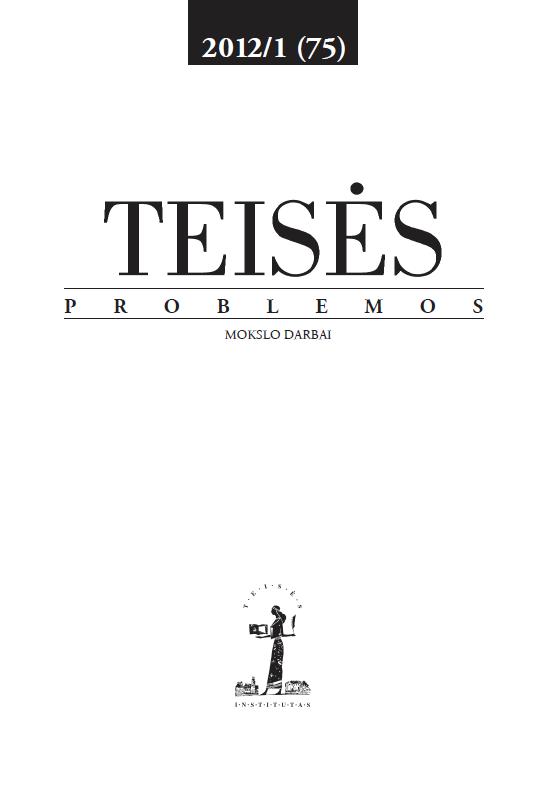Turtinė parama išlaikymo reikalingiems vyresnio amžiaus žmonėms: civilinės teisės perspektyva
Maintenance of the Aged: a Civil Law Perspective
Author(s): Kristina AmbrazevičiūtėSubject(s): Civil Law
Published by: Lietuvos teisės institutas
Summary/Abstract: In Lithuania, as well as in many other developed and developing countries, population is graying thus making the question of aged peoples’ maintenance especially acute. Besides maintenance provided by the means of public law, such as various social insurance schemes, civil law also addresses this issue. The article explores two civil law’s institutes which could provide aged persons with the financial help. First of them is a duty to maintain family members. In Lithuanian Civil Code one can identify three particular maintenance duties which could be used by the aged: between spouses, between adult children and their parents, between adult grandchildren and their grandparents. The article deals with each of these cases separately, identifying criterions according to which necessity and extent of maintenance is established. The analysis shows that the most efficient is the maintenance provided by spouse or former spouse. At the same time the requirement of disability or retirement age which is established with regard to parents and grandparents is unnecessary and arguably unconstitutional. Also, attention is paid to the problem of cohabitants which is left outside the maintenance duty. Second part of the article analyses guaranties for the aged persons provided for in succession law. In case of intestate succession aged spouses are granted strong position as they share inheritance with children of the deceased or, in the absence of children, with grandchildren and parents of the deceased. Again, cohabitants are excluded from the intestate succession. Parents and grandparents of the deceased are in a somehow weaker position, because children and grandchildren of the deceased have a priority to inherit. In case of testamentary succession, the rules establishing mandatory succession protects aged parents, spouses and children of the deceased if the need for maintenance is proved. Again, cohabitants cannot benefit from these rules.
Journal: Teisės problemos
- Issue Year: 2012
- Issue No: 75 (1)
- Page Range: 98-126
- Page Count: 29
- Language: Lithuanian

